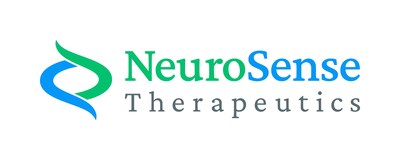NeuroSense Announces New Positive Data Analysis from PARADIGM Clinical Trial Demonstrating Statistically Significant Slowing of Disease Progression in High-Risk ALS Patients
NeuroSense Therapeutics announces positive data analysis from the PARADIGM clinical trial, showing a 43% slowing of disease progression in high-risk ALS patients treated with PrimeC. The study demonstrated consistent results across subgroups, indicating the potential of PrimeC to redefine ALS treatment. The CEO expressed optimism and highlighted the significant impact of PrimeC on patients, with plans to use the data for the upcoming pivotal trial.
Positive data analysis from the PARADIGM clinical trial showing a 43% slowing of disease progression in high-risk ALS patients treated with PrimeC
Consistent results across subgroups indicating the potential of PrimeC to redefine ALS treatment
CEO expressing optimism and highlighting the significant impact of PrimeC on patients
Plans to utilize subgroup analyses to inform the design of the upcoming pivotal trial for increased probability of success and cost-effectiveness
- None.
Insights
- PrimeC slowed disease progression by
43% (p=0.02) in pre-specified high-risk ALS patients - Consistent data across subgroups underscore the potential of PrimeC to redefine the ALS treatment paradigm

High-risk patients, defined by the European Network for the Cure of ALS (ENCALS) Risk Factor as those with a higher risk for rapid disease progression, comprise approximately
"The impressive results of these new analyses raise further enthusiasm for the potential impact of PrimeC on people with ALS. With the magnitude of its effect and consistency across subgroups, PrimeC, if approved following a Phase 3 trial, could significantly improve the standard of care for people with ALS," commented Jeremy M. Shefner M.D., Ph.D., Professor of Neurology at the Barrow Neurological Institute,
In addition to the subgroup of high-risk patients, patients treated with PrimeC who had symptoms for up to 12 months prior to the baseline visit (newly diagnosed patients), showed a
In the Intent-to-treat (ITT) population, high-risk ALS patients treated with PrimeC experienced a
Additional results of the subgroup analysis of the effect of PrimeC versus placebo on ALSFRS-R showed:
- Participants with a disease duration of up to 18 months (PP analysis), PrimeC demonstrated a
38% change (p=0.054) - Participants with a disease duration of up to 24 months (PP analysis), PrimeC demonstrated
37% reduction in symptom scores (p=0.047)
The Company plans to utilize these subgroup analyses to help inform the design of the upcoming pivotal trial, which the Company believes will increase its probability of success and its cost-effectiveness.
Alon Ben-Noon, NeuroSense's CEO commented, "We believe this is one of the most compelling results seen to-date in an advanced, double-blind clinical trial in ALS, demonstrating slowing the progression of ALS in patients in earlier stages with an aggressive disease. Seeing PrimeC's significant impact in the general PARADIGM population in all various clinical aspects, and even more in multiple sub-groups on the gold-standard ALSFRS-R, is truly gratifying, and we are looking forward to analyzing and reporting on the 12-month study survival data in the next few weeks."
About ALS
Amyotrophic lateral sclerosis ("ALS") is an incurable neurodegenerative disease that causes complete paralysis and death within 2-5 years from diagnosis. Every year, more than 5,000 people are diagnosed with ALS in the
About ALSFRS-R
Disease progression is measured by the ALS Functional Rating Scale-Revised (ALSFRS-R), which is the most widely used ALS tracking tool accepted by the FDA, utilized by neurologists treating ALS patients, in clinical trials, and by other regulators to determine disease progression. It tracks 12 changes in a person's physical abilities over time including functions such as: speech, walking, climbing stairs, dressing/hygiene, handwriting, turning in bed, cutting food, salivation, swallowing, and breathing. A single point change on the ALSFRS-R has a significant impact on ALS patients, such as the transition from independent feeding to requiring assistance or independent breathing to needing to use a machine ventilator.
About PARADIGM
PARADIGM is a prospective, multinational, randomized, double-blind, placebo-controlled Phase 2b (NCT05357950) clinical trial of PrimeC in ALS. The trial included 68 participants living with ALS in
As previously reported, top-line data from the 6-month double-blind segment of the trial showed clinically meaningful signs of efficacy with a
About PrimeC
PrimeC, NeuroSense's lead drug candidate, is a novel extended-release oral formulation composed of a unique fixed-dose combination of two FDA-approved drugs: ciprofloxacin and celecoxib. PrimeC is designed to synergistically target several key mechanisms of ALS that contribute to motor neuron degeneration, inflammation, iron accumulation and impaired ribonucleic acid ("RNA") regulation to potentially inhibit the progression of ALS. NeuroSense completed a Phase 2a clinical trial which met its safety and efficacy endpoints including reducing functional and respiratory deterioration and statistically significant changes in ALS-related biological markers indicating PrimeC's biological activity. PrimeC was granted Orphan Drug Designation by the
About NeuroSense
NeuroSense Therapeutics, Ltd. is a clinical-stage biotechnology company focused on discovering and developing treatments for patients suffering from debilitating neurodegenerative diseases. NeuroSense believes that these diseases, which include amyotrophic lateral sclerosis (ALS), Alzheimer's disease and Parkinson's disease, among others, represent one of the most significant unmet medical needs of our time, with limited effective therapeutic options available for patients to date. Due to the complexity of neurodegenerative diseases and based on strong scientific research on a large panel of related biomarkers, NeuroSense's strategy is to develop combined therapies targeting multiple pathways associated with these diseases.
For additional information, we invite you to visit our website and follow us on LinkedIn and X.
Forward-Looking Statements
This press release contains "forward-looking statements" that are subject to substantial risks and uncertainties. All statements, other than statements of historical fact, contained in this press release are forward-looking statements. Forward-looking statements contained in this press release may be identified by the use of words such as "anticipate," "believe," "contemplate," "could," "estimate," "expect," "intend," "seek," "may," "might," "plan," "potential," "predict," "project," "target," "aim," "should," "will" "would," or the negative of these words or other similar expressions, although not all forward-looking statements contain these words. Forward-looking statements are based on NeuroSense Therapeutics' current expectations and are subject to inherent uncertainties, risks and assumptions that are difficult to predict and include statements regarding PrimeC as a potential treatment for people with ALS and regarding the success and cost-effectiveness of a pivotal trial. Further, certain forward-looking statements are based on assumptions as to future events that may not prove to be accurate. The future events and trends may not occur and actual results could differ materially and adversely from those anticipated or implied in the forward looking statements. These risks include the risk that PrimeC will not improve the standard of care for people with ALS, that the pivotal trials will occur and if it will occur will be successful or cost-effective, unexpected R&D costs or operating expenses, the timing of expected regulatory and business milestones, risks associated with meeting with the FDA to determine the best path forward following the results from PARADIGM clinical trial, including a delay in any such meeting, a delay in patient enrollment for a Phase 2 trial for Alzheimer's disease; the potential for PrimeC to safely and effectively target AD; preclinical and clinical data for PrimeC; the uncertainty regarding outcomes and the timing of current and future clinical trials; timing for reporting data; the development and commercial potential of any product candidates of the company; and other risks and uncertainties set forth in NeuroSense's filings with the Securities and Exchange Commission (SEC). You should not rely on these statements as representing our views in the future. More information about the risks and uncertainties affecting the Company is contained under the heading "Risk Factors" in the Annual Report on Form 20-F filed with the Securities and Exchange Commission on March 22, 2023. Forward-looking statements contained in this announcement are made as of this date, and NeuroSense Therapeutics Ltd. undertakes no duty to update such information except as required under applicable law.
Logo: https://mma.prnewswire.com/media/1707291/NeuroSense_Therapeutics_Logo.jpg
SOURCE NeuroSense








